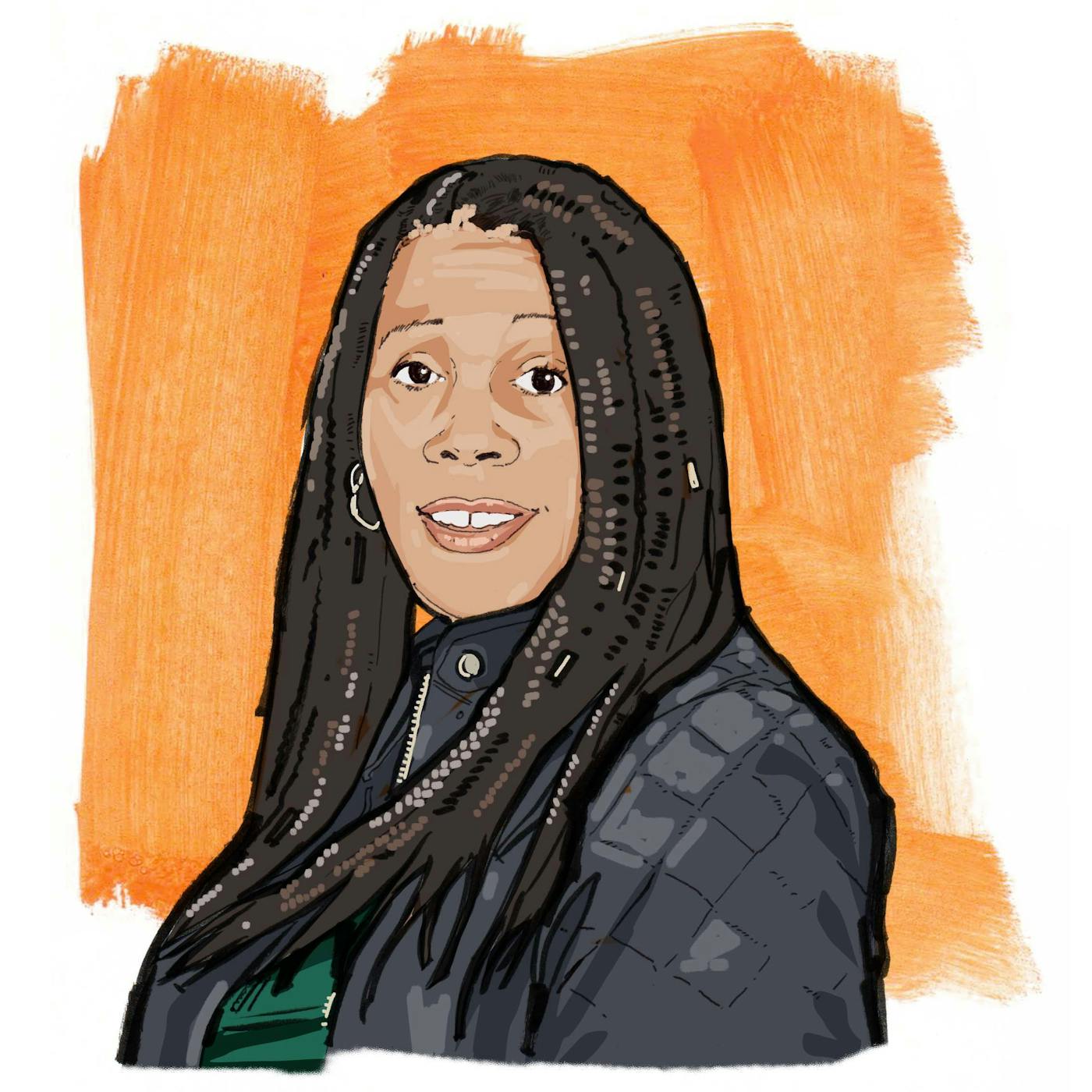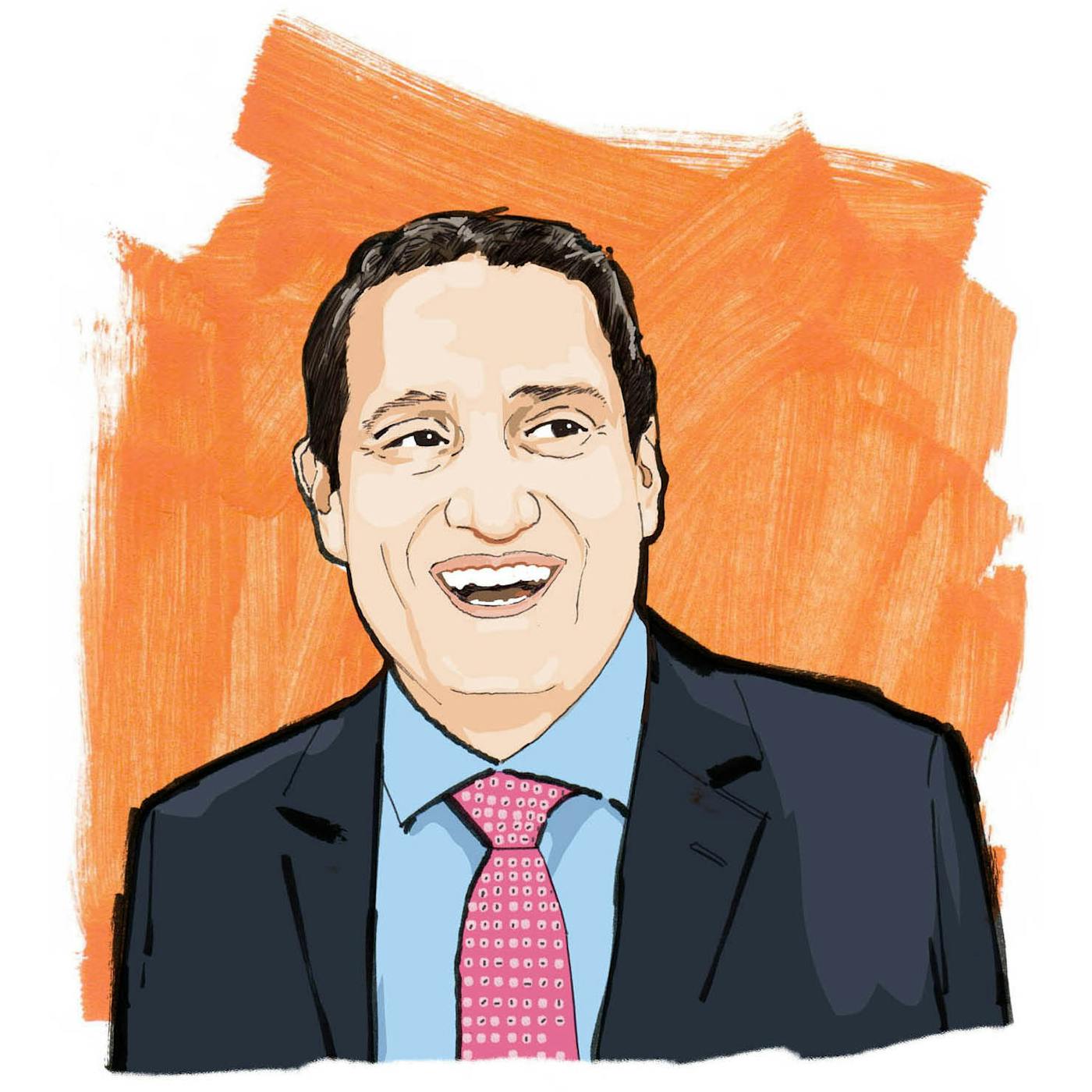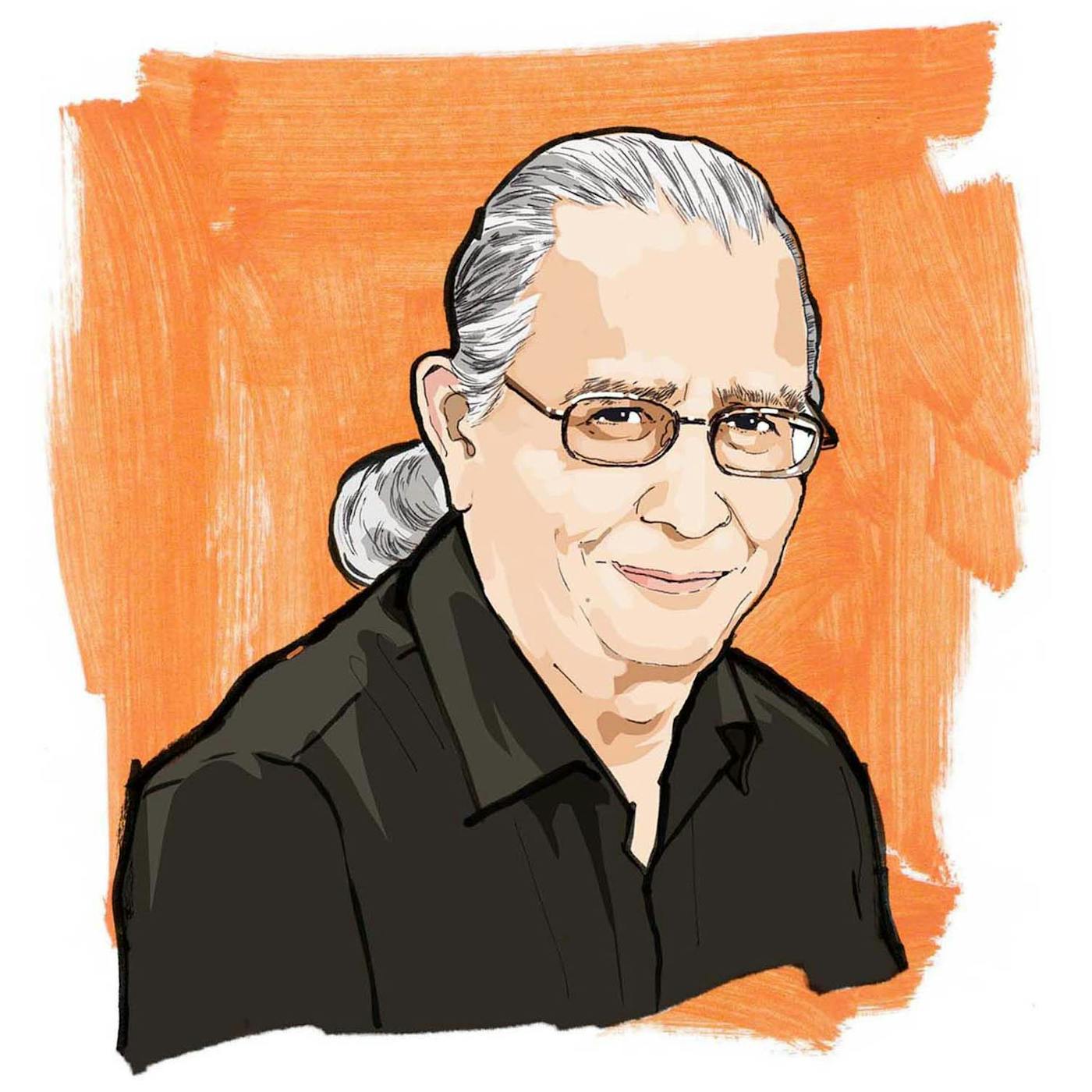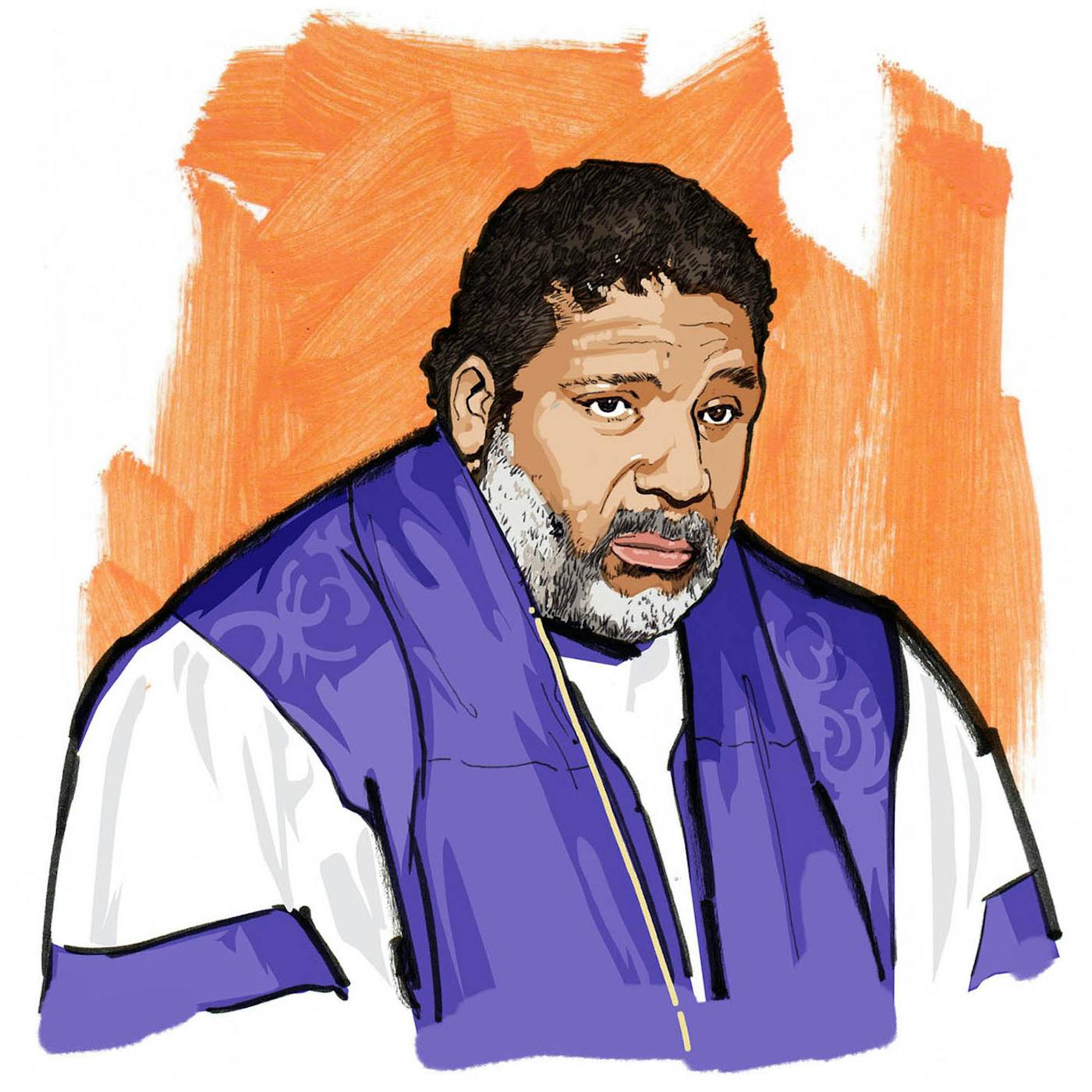By one view, the 2020 election was an astounding success for American democracy. Despite a devastating global pandemic and spasms of civil unrest, almost 160 million Americans, or roughly 66 percent of the potential electorate, cast a ballot—the highest participation rate in an election cycle since 1900. For an optimist, the election was a stirring reaffirmation of the American ideal of self-government and its ability to overcome nearly any hurdle.
But a darker interpretation of these events is possible. Though the 2020 election saw record turnout levels, it also faced extraordinary challenges to its conduct and integrity. Every credible expert and agency concluded that there was no evidence of significant or serious fraud or misconduct, yet former President Donald Trump spent months impugning the legitimacy of the vote before Election Day and waged a cynical campaign of lies to overturn the results after he lost. On January 6, by inciting a riot to attack Congress during the Electoral College count, Trump broke America’s two-century streak of peaceful transfers of power.
Which vision of American democracy will prevail? Was the 2020 election the high-water mark for far-right groups and actors who wish to destabilize our republican systems of government for personal gain? Or was it the last, shining moment for a vision of liberal democracy that came into fruition with the civil rights reforms of the 1960s and has been steadily eroded ever since?

Jocelyn Benson
WHO SHE IS
Michigan’s secretary of state
HOW SHE’S HELPING
Jocelyn Benson guided Michigan through the 2020 elections. In early 2021, she proposed converting some of the temporary, pandemic-related changes, which states had adopted to boost turnout, into permanent reforms.
Political extremism is nothing new for Jocelyn Benson, who was elected as Michigan’s secretary of state in 2018. Two years later, during the high-stakes, high-profile clash between Biden and Trump, she found herself overseeing the state’s election process amid lawsuits and even armed protests. Benson’s gateway into voting rights was a job as a researcher for the Southern Poverty Law Center, the civil rights organization famous for its tracking of hate groups and their activities. Part of her work involved undercover surveillance of extremist groups. “My most vivid memories are of going back to my hotel room at the end of the day, and being worried that someone would follow me,” she told me. “When you overcome fears like that in a very real way, it just emboldens you.”
When Benson began her career in Montgomery, Alabama—the crucible of the voting rights movement in the 1960s—she had plans of becoming a voting rights attorney. “I just wanted to enforce the Voting Rights Act,” she told me. But she soon realized that one of the most important avenues to do that was not in the fights after Election Day, but before it, in the work of those who administer elections. Since U.S. elections are largely run by state and local officials, secretaries of state in particular can be quietly influential figures in how those elections are conducted. (Though not every secretary of state is involved in election supervision—Wisconsin’s, for instance, is largely charged with record-keeping duties.)
After moving back to Michigan, Benson began working as a law professor at Wayne State University and, in 2010, wrote the book—quite literally—on the role that secretaries of state play in protecting U.S. democracy. “I wanted to explain to voters … when you elect these election administrators, you choose who runs your democracy,” she told me. At the time, her topic was relatively esoteric—and prescient. But by the 2020 election and the disruptions of the pandemic, the importance of such figures was thrown into sharp relief. And in the months since, Benson suggested, voting rights have only been further imperiled. She has witnessed activists and some leaders in Michigan repeating the Big Lie, she said, in an effort “to sow seeds of doubt, to enable potentially partisan actors to overturn future election results.” The Big Lie is spurring policy, too. And there are “efforts to replace election officials with people who might be more willing to block or otherwise undermine the election results in the future, or who seek to pressure or intimidate those election administrators who are doing the right thing.”
Michigan, which narrowly went for Trump in 2016, found itself to be a battleground state once more in 2020. It was also facing a simmering undercurrent of right-wing unrest. In April 2020, armed anti-lockdown protesters gathered outside the Michigan Capitol in Lansing and made their way into the building itself while lawmakers debated pandemic-related measures, disrupting their session. The protesters received moral support from President Donald Trump, who called them “very good people” and urged Michigan Governor Gretchen Whitmer to “make a deal” with them. “LIBERATE MICHIGAN!” Trump infamously urged on Twitter. Later last year, the FBI announced it had disrupted a militia plot to kidnap and execute Whitmer.
In February, Benson laid out proposals for state lawmakers aimed at expanding voting rights and protecting democracy. The proposals include many of the reforms that states temporarily adopted during the pandemic: mailing absentee ballot requests to all registered voters, creating a safe-harbor date for ballots postmarked by Election Day but received after polls close, allowing voters to cast their ballots early in person, making Election Day a state holiday, and much more. Effectively, Benson would like to convert some of the temporary, pandemic-related changes, adopted by states to boost turnout, into permanent reforms.
The Michigan Republicans who control the state legislature have a much different approach in mind. Earlier this summer, lawmakers passed a slate of election changes that seem to do the opposite of what Benson proposed. The bills limit election officials’ ability to solicit absentee ballot applications, throw up a wave of new voter-ID requirements for in-person and absentee voters alike, reduce the number of drop boxes available in each county, and make it harder for election officials to count provisional ballots. Though Whitmer has since vetoed some of the measures, Republicans are hoping to bypass her disapproval by proposing the others as petition drives instead.
Benson’s sense of optimism about the health of American self-government is tempered by the realities of the moment. “I’m hopeful that if we get through 2024, and are similarly able to look back and say democracy prevailed again, that there will be bluer skies ahead or smoother sailing ahead,” she told me. “But we are very much in the middle of a war over the future of our democracy.”

Kadida Kenner
WHO SHE IS
Executive director of the New Pennsylvania Project, an organization devoted to getting out the vote in Pennsylvania
HOW SHE’S HELPING
Kadida Kenner is working to expand the electorate in one of the most important battleground states in the country.
Perhaps the most well-known voting rights campaign of the past decade took place in Georgia, where, in 2013, then–state lawmaker Stacey Abrams and a host of other activists launched the New Georgia Project to turn out voters of color in that state’s elections. By 2019, according to the group, it had registered nearly a half-million voters across Georgia’s 159 counties. That long-term strategy changed the political complexion of a once reliably conservative electorate and helped propel Joe Biden and two Democratic senators to Washington.
Kadida Kenner, the executive director of the New Pennsylvania Project, told me that she hopes to replicate the Georgia group’s success in her own state. She said that she doesn’t expect to match its accomplishments right away. “But we do want to get to these numbers for 2022 and beyond.” As she pointed out, 1.1 million eligible yet unregistered voters remain in Pennsylvania—“there’s still so many more to engage.”
Every political campaign tries to register voters ahead of an election and increase turnout among its supporters in the weeks and months before Election Day. (Even Trump, who worked tirelessly to discredit the vote before his defeat in 2020, poured resources into making sure his supporters cast a ballot.) The New Pennsylvania Project, however, is consciously modeled on the New Georgia Project’s “secret sauce” for boosting voter engagement, as Kenner put it, which was predicated on involving voters more consistently, outside the rhythms of the election cycle. “We want to engage these folks year-round,” Kenner explained. “And we want to talk about the issues.” Just as in 2013 the New Georgia Project talked about the Affordable Care Act, the New Pennsylvania Project is talking about the American Rescue Plan, minimum wage, and the educational funding gap. “We’re talking about issues that matter to the communities that we’re in, and they all look different.”
Like many voting rights activists, Kenner hoped to engage people who were effectively disenfranchised from the process by gerrymandering or voter-suppression measures. But she said she also wanted to energize “functionally disenfranchised” voters. “They just don’t see themselves represented in government here in the commonwealth or federally,” she told me. “They don’t see someone who looks like them serving them, or they just don’t see their lives changing for the better after voting in several elections and have given up.”
The role Kenner is playing is not one she expected five years ago. Though she had worked for political campaigns early in her career, she began producing TV shows and sports broadcasts, and spent time in North Carolina at ESPNU, where she largely focused on producing football and basketball games for the Central Intercollegiate Athletic Association, a Division II conference of historically Black universities. Then, in 2016, North Carolina Republicans passed House Bill 2, the controversial state law that preempted local anti-discrimination ordinances and barred transgender people from using bathrooms in public buildings that match their gender identity. H.B. 2 received nationwide backlash and boycotts, and the NCAA decided to pull its tournaments out of North Carolina, a move that left Kenner and many others in the state’s sports-broadcasting industry without work. So Kenner took a job with the Hillary Clinton campaign as an organizer in Charlotte. “I thought that after the 2016 election, I would go back to TV production,” she told me. But after the results, she found she couldn’t. “I couldn’t go back to having such a good time in production trucks and making sure commercials run. I wanted to come back home and defend democracy.”
Her move back to Pennsylvania came at an auspicious moment. The commonwealth narrowly went to Trump in 2016 but reelected Democratic Governor Tom Wolf in the 2018 midterm elections. Biden’s victory in 2020 came after an intense campaign by Trump and his allies to delegitimize the results, often by spreading false claims about voter fraud and making baseless accusations about the integrity of the vote-counting process. Even before the election itself, state Republican leaders told The Atlantic that they were considering whether the GOP-led state legislature could ignore the results and choose a slate of presidential electors itself, defying the voters’ will.
Biden’s narrow victory—and the role that voting rights protections likely played in it—have only heightened the stakes going forward. After the election, Republican state lawmakers tried to pass a series of restrictive voting measures but failed to overcome Wolf’s veto. Instead, they planned to enact the proposed law by way of a ballot initiative for the voters to decide in next year’s elections. Some state lawmakers are openly calling for an “audit” of the 2020 results, akin to the purported “audit” carried out in Arizona, in order to further delegitimize the results in the state. The point, Kenner told me, is to put “the thought in the electorate’s head here that we’re not having free and fair elections when we are.”
Though part of the New Pennsylvania Project’s engagement strategy involves discussing the issues with voters, its focus is still squarely on voting rights. To Kenner, the issues can’t be disentangled from one another. “We can care about environmental justice, we can care about economic justice, but if we can’t vote, then how do we even get to fight for these other issues that we’re hearing about? It all starts at the polls.”

Trey Martinez Fischer
WHO HE IS
Democratic member of the Texas House of Representatives
HOW HE’S HELPING
This summer, Trey Martinez Fischer helped organize Democratic legislators in Texas to leave the state in order to block new voting restrictions. The lawmakers urged Congress to pass new voting rights measures.
For the Democratic lawmaker Trey Martinez Fischer, one of the most worrying signs of the erosion of voting rights happened not in his home state of Texas but in Georgia, which in March passed a series of new restrictive measures. Park Cannon, a Georgia state lawmaker and a Democrat, tried to enter the ceremony in the state Capitol where Governor Brian Kemp planned to sign the bill into law. After knocking on the door to Kemp’s office, she was arrested by Capitol police and charged with two felonies. Prosecutors later dropped the charges, but footage of her arrest had already gone viral. “That is a memory I’ll never forget,” Fischer said. “It really was a warning to states like Texas to know that if they can silence the voices of voters in Georgia, they can do it in Texas.”
Fischer had the incident in mind later last summer, when Texas Democrats tried to block the legislature from passing new voting restrictions that would be some of the most severe in the country. Republicans in the state have firm control of the legislature and hold all the statewide offices. But the state constitution gives Democratic lawmakers a break-glass-in-case-of-emergency tool to block their GOP colleagues from enacting new laws: It requires a two-thirds quorum for the legislature to conduct business. (Congress, by comparison, only requires a bare majority of lawmakers to be present.) So Democrats, emboldened by national attention to the issue—President Biden had denounced the bill as Jim Crow—planned a walkout in order to prevent the special session from passing it.
At the time, hope that Congress would pass a new federal voting rights law was fading in Washington. In June, the Democratic-led Senate failed to overcome a Republican filibuster of the For the People Act. “Legislation is one tool,” Biden said in a July 13 address in Philadelphia, “but not the only tool.” A day later, Texas Democrats left the state and traveled to Washington to urge lawmakers to try again. Though voting rights activists pressed Democratic senators to keep working, the filibuster—and the refusal of West Virginia’s Joe Manchin and Arizona’s Kyrsten Sinema to support changes in it—remained an implacable foe.
The Texas Democrats’ gambit ultimately failed to stop the state-level bill outright—three Democratic lawmakers returned to Austin in August, giving the legislature a quorum and allowing it to pass. But the timing of the maneuver reenergized Democrats to pursue federal voting rights legislation. It’s still unclear whether such a bill can overcome the filibuster. Manchin’s efforts to rewrite a bipartisan version of Democrats’ proposal, for example, hasn’t yet yielded a single GOP vote in its favor.
For Fischer, a lawyer and a 10-term state representative hailing from San Antonio, the fight over representation is a familiar one. He is a member and former chair of the state’s Mexican American Legislative Caucus, which served as one of the plaintiffs in two major cases on voting rights over the past decade: a long-running racial-gerrymandering case where the Supreme Court overturned most of the lower courts’ findings of discrimination, and a multiyear challenge to a voter-ID law passed by Texas in 2011 that was eventually upheld by the 5th U.S. Circuit Court of Appeals. The two rulings underscore how the federal courts have become an increasingly serious obstacle to voting rights advocates.
When I asked him about his role in those cases, he told me that it didn’t evoke a sense of pride in him. “It’s a sad state of affairs,” Fischer said, that “at a time when minorities make a majority of the state’s population, we still have to fight for these fundamental rights to be represented and to be heard.” He attributed the GOP’s move toward voter suppression to fear and opportunity. Without Section 5 of the Voting Rights Act, Republicans are able to act on their terror of losing power as the state’s demographics change. “They’re gonna throw out the political Hail Mary, and do everything they can to extend their power.”
If past is prologue, more legal battles are almost certainly on the horizon. Lawsuits have already been filed to challenge the Texas voting law that Fischer and his colleagues temporarily blocked. It’s virtually guaranteed that Texas’s redistricting plan, which Governor Greg Abbott approved in October, will be challenged in court. From the time that Texas fell under the VRA’s preclearance regime to the court’s decision in Shelby County that demolished it, Fischer said, the state was never able to implement a redistricting plan without objections by the Justice Department or a federal district court. “There’s not a single decade where Texas was able to escape with a seal of approval from federal authorities when it came to voting rights through redistricting.”
Eventually, Texas may even turn blue, a transformation that is the holy grail of Democrats nationwide and the worst fear of countless conservatives. But without nationwide voting rights standards, that day will not come as soon as it could. “At the end of the day, I don’t know what all this fuss is about the need to have integrity at the ballot box,” Fischer quipped, “because for the last 20 years Republicans have been winning handily up and down the ballot.... I understand sore losers, but I don’t understand being a sore winner. That’s the part that just confuses the hell out of me.”

Lina Hidalgo
WHO SHE IS
County judge in Harris County, Texas
HOW SHE’S HELPING
Lina Hidalgo was so effective at boosting voter turnout in 2020 that the GOP-led Texas legislature banned many of her reforms.
Few election officials have as much firsthand experience with the lengths that Republicans will go to justify voter suppression as 30-year-old Lina Hidalgo, the county judge for Harris County, Texas, and the first Latina elected to the post. Texas has a unique system for local government: In addition to a handful of judicial responsibilities, county judges have a broad array of administrative, executive, and emergency powers. Harris County, which includes most of Houston, is home to more than 4.7 million people; its county judge is one of the most important local officials in the country. I caught up with Hidalgo shortly after Texas Republicans announced an “audit” of the state’s election results in four counties, including Harris. When I asked her about voting rights in the Lone Star State, her response was grim. “It’s hard to find a word to express how dangerous the situation is,” she told me. “We’ve taken so many steps backwards.”
Election audits are not inherently worrisome. Some states require a statewide audit of election results before they are certified. If done properly, by credible sources, audits can ensure confidence in an election’s outcome. Over the past year, however, state and local Republican officials in key states have embraced the idea of supposedly independent audits to pursue phantasmal evidence of voter fraud in the 2020 election. The haphazard audit of Arizona’s election results by Republican state senators and a private right-wing company would almost be funny if it weren’t so deadly serious. The campaign is part of a broader effort by Trump and his allies to delegitimize the results and undermine confidence in election outcomes—a strategy that he exploited among his base while trying to toss out the election results and hold on to power right up to the violence and bloodshed on Capitol Hill on January 6.
Hidalgo is no stranger to authoritarian regimes. After graduating from Stanford University, she worked for nonprofit groups in foreign countries on press freedom issues and, when she returned home, for the Texas Civil Rights Project. Like many immigrants—Hidalgo was born in Colombia and became a U.S. citizen in 2013—she has a deep appreciation for the potential and the promise of U.S. democracy. “I was in Thailand during the latest coup,” she told me. “I was in Colombia when it was a failed state. I was in Myanmar during the military junta. I’ve seen all this. And it’s not something to meddle with, democracy. It’s just not.”
After Trump’s election, Hidalgo decided to enter politics and run for local office. “Things are too urgent, the challenges are too big, and the president’s taking us onto a dangerous path,” she recalled thinking. “And so I need to just get in there myself.” She ran for county judge to unseat Ed Emmett, a popular Republican who had held the position for more than 10 years. Buoyed by the nationwide backlash against Trump and the GOP in the 2018 midterms, Hidalgo narrowly swept into office on a platform of criminal-justice reform and health care access. Little more than a year later, the Covid-19 pandemic struck the United States.
Part of her duties involved managing the county’s response to rising infection rates—a formidable task that became even harder after Governor Abbott began issuing executive orders to curb local officials’ public-health powers. Hidalgo and the county commissioners also took extraordinary steps to ensure that voting would run smoothly and safely in the 2020 election. Hidalgo told me that Harris County “pioneered” drive-through voting and 24-hour voting, allocated voting machines so efficiently that the county had “functionally no lines,” and expanded its poll-worker program to keep things operational. As a result, Harris County had its highest turnout rates in 30 years—“for both parties,” she added.
Those successes didn’t come without stiff resistance from the Trump campaign and its allies among Texas Republicans, who fought the measures in court and through friendly officials. Roughly one month before Election Day, Abbott issued an order that limited each county to just one drop-off site for absentee ballots. Loving County, the state’s least populous subdivision, has just 64 residents. Harris County, which is larger than Rhode Island, is home to nearly five million. The voting bill Texas passed earlier this year now bans many of the reforms that Hidalgo implemented last year, including drive-through voting and 24-hour voting, and imposes onerous new burdens for obtaining and submitting an absentee ballot.
“The biggest problem,” Hidalgo said, “is that elections themselves—and democracy itself—have suddenly become fair game for political fighting.” She largely attributed the Republicans’ turn toward voter suppression to cynicism and pandering; local officials want to run for statewide office and statewide officials want to run for national office. She described her Republican colleagues at the Harris County commissioners court as smart, serious people. When she asked them whether they were going to support the audit, “they were sort of mumbling,” she recounted. “They don’t want to ... they don’t have a good reason to support it. But they believe it’s political suicide for them not to.”

Oliver Semans
WHO HE IS
Co-executive director of Four Directions, an organization that works to advance voting rights in Indian Country
HOW HE’S HELPING
With Four Directions, Oliver Semans successfully fought for the creation of satellite election offices in South Dakota aimed at improving accessibility for Native voters and increasing voter registration.
Close elections can turn ordinary citizens into activists, as they realize how a handful of votes can shift national power. For Oliver Semans, an enrolled member of the Rosebud Sioux Tribe and a longtime Native voting rights activist, his first encounter with electoral politics came in 2002, during a close race for one of South Dakota’s U.S. Senate seats. Tim Johnson, the Democratic incumbent, beat his Republican rival, John Thune, by only 524 votes. “We realized that by tribes and tribal members not being involved, it was basically an economic death wish on our part,” he told me.
His wife, Barb, the co-executive director of Four Directions, worked on Native outreach for the Johnson campaign, which proved to be pivotal in the close election. “It was kind of opening our eyes to how we needed to ensure that we were heavily involved in the electoral process,” he recalled. The Semans, who had previously been active in tribal governance, founded Four Directions to protect and expand voting rights throughout Indian country. “Our main purpose at that time was just to get out the vote,” he told me. But then they started seeing “all kinds of little barriers” that people on reservations faced that everyone else didn’t. Most of those barriers are practical: the relative geographic isolation of many reservations, poor roads and internet access, and unreliable postal services. In South Dakota, Semans and Four Directions successfully fought for the creation of satellite election offices that offer all the features of regular state election offices on the reservations, mirroring the ones provided to counties. From there, he and his allies used litigation to press Montana and Nevada to adopt similar systems. When Democrats recently took control of the Nevada legislature, Semans told me, they passed a law that allowed tribal communities in that state to request the offices, effectively enshrining in state law what he had pushed for.
As for so many other voting rights activists over the past decade, there have also been major setbacks. In 2013, the Supreme Court’s conservative majority gutted the preclearance system in the Voting Rights Act of 1965 in Shelby County v. Holder. The preclearance system, described in Section 5 of the act, had required states and local jurisdictions with histories of discriminatory voting practices to clear any election-law changes with the federal government; now they didn’t have to. The two South Dakota counties that cover the Pine Ridge and Rosebud Sioux reservations came under Section 5 after Congress amended the law in 1975.
Most discussions of preclearance revolve around the Southern states that once fell under Section 5 in full. But South Dakota had its own troubled history of unequal voting laws: Native voters living on reservations had to travel to a county assessor’s office to register to vote, for example, while non-Native voters were automatically registered when they had their property taxes assessed. Semans, along with a coalition of other Native groups and activists, filed a friend-of-the-court brief in Shelby County in support of the VRA, but to no avail. “By the way, that ruling came out on June 25, the anniversary of the Battle of Little Bighorn,” he added wryly while recounting the case. “See, I think all in Indian perspective.”
The VRA suffered another grievous blow earlier this year after the Supreme Court effectively rewrote a key provision in Brnovich v. Democratic National Committee, narrowing the civil rights law to make it far more burdensome for litigants to challenge racial discrimination in voting laws—and that much easier for states to impose new barriers. “I got a big chuckle out of it because the Supreme Court takes 10 pages to tell you that what you thought equal meant really didn’t mean equal,” Semans told me. “I looked at it and I go, ‘Wow, this is like what a treaty writer would do and they’re treating Congress like a treaty tribe now.’”
Semans hopes that Congress will pass a federal voting rights bill this year and fully fund the Help America Vote Act of 2002, adding conditions that make it harder for states to escape their voting rights obligations. Another proposal that he supports is the Native American Voting Rights Act, a bill reintroduced earlier this year that specifically targets some of the most obvious barriers to Native voting access. Unlike other voting rights laws under consideration by Congress, this one already has bipartisan support: Oklahoma Representative Tom Cole, a Republican and an enrolled member of the Chickasaw Nation, co-sponsored the House version of the bill. It would expand the number of polling places, drop-off boxes, and registration sites in precincts on tribal land, as well as provide greater access to mail-in ballots and require that states accept tribal and federal Bureau of Indian Affairs IDs if they have voter-ID laws.
I asked Semans whether, with all his experience, he was more optimistic or pessimistic about the future of voting rights in general, and for Native communities in particular. “I’m optimistic we will find a way to create equality at that ballot box,” he replied. “But I’m also old enough and been in it long enough to know that it’s still going to be a continued fight to keep it.”

William Barber II
WHO HE IS
Minister and former head of the National Association for the Advancement of Colored People in North Carolina.
HOW HE’S HELPING
The Reverend William Barber II has organized in support of federal voting rights legislation. The preservation of voting rights, he argues, is inseparable from the fights against poverty and injustice in American life.
After the 2010 midterms, North Carolina became a model for what Republican state governance would look like without opposition. In 2010, the state used new Census data to redraw its legislative maps; in 2013, Republicans gained a supermajority and the governorship. Almost immediately, the Reverend William Barber II told me, the party went after women’s and LGBT rights, cut a billion dollars in funding for public education, and blocked living wages. “And then,” Barber said, “they decided to go after voting rights.”
Barber responded with state and local leaders by organizing “Moral Monday” protests every week in Raleigh. “We have to bear witness to the moral wrong that is being committed here,” he said during the first protest. “We have asked the leadership to rethink their unconstitutional and immoral attack on voting rights. But now the House has passed a ruthless attack on democracy, a poll tax in disguise, an attack on college students, the elderly, minorities, and the poor. They have no ears to hear.”
Voting rights protests aren’t unusual in the United States these days. What was striking about Moral Mondays was their sweeping ambit. Barber and his allies did not limit themselves to questions of gerrymandering or voter-ID laws, but built a broader coalition around the issue of who was excluded from America’s political and economic systems and who was empowered by them. The protests foreshadowed Governor Pat McCrory’s defeat in 2016, a rare bright spot for Democrats in an election that swept Trump and a Republican Congress into Washington.
When I spoke with Barber, he had just returned from West Virginia, where he had helped pressure Joe Manchin, the conservative Democratic senator, to support federal voting rights legislation. “People like him only move when you touch him in that state,” Barber said. Hundreds of people marched to Manchin’s doorstep; two days later, he came up with a compromise. Manchin’s proposed Freedom to Vote Act is flawed, however. Barber praised some aspects but criticized the absence of ethics protections (previous versions of the bill mandated the development of a code of ethics for Supreme Court justices) and some other reforms. His most pointed criticism was aimed at the voter-ID provision, which bucked years of Democratic opposition to those proposals as discriminatory toward communities of color and low-income voters. Manchin, nodding to conservative rhetoric, added a voter-ID provision to his proposal. “That is very, very, very, very, very politically dangerous language,” Barber told me. “And we believe that needs to be amended out of what has been suggested. You can’t pass that deal with that in it, because it’s actually the Big Lie being codified into law.”
Barber’s approach to politics is distinctly fusionist: He emphasizes the shared struggles faced by poorer and low-income whites and Blacks. “The same forces that will suppress your vote will suppress your wages,” he told me. Accordingly, he believes, there are three “philosophical infrastructures” that Congress must address: voting rights protections that bolster the infrastructure “of our democracy”; infrastructure “that impacts our daily lives like living wages, and health care, and addressing the climate”; and the infrastructure “of our roads, technologies, and bridges.” All of it he sees as inseparable. “We can’t play the normal Washington politics of pitting one against the other,” he told me. “In this moment, they are all connected together.”
Barber’s organizing is not simply aimed at trying to increase voter turnout for Democrats; it’s centered on changing the broader economic balance of power. He pointed to data showing that low-income voters are 20 percentage points less likely to vote than higher-income voters. The research, by Robert Paul Hartley, an assistant professor of social work at Columbia University, found 15 states where low-income voters could have tipped the balance in the 2016 presidential election had the participation gap been closed. That disparity, Barber told me, helps produce a system where low-income voters and their interests are neglected by elected officials. “I like to say Republicans blame poor and low-wealth people for their failure,” he said. “Democrats try to run from even saying the word poverty. They say things like ‘those working to get into the middle class,’ and that kind of philosophy. When you dismiss the agency of poor or low-wealth people, it undermines your ability to think, in a way. And, importantly, it undermines your ability to build “an organizing strategy that would include … low-wealth people.”
There’s a widespread sense in Washington that Democrats are likely to lose control of one or both chambers of Congress in next year’s midterms. Barber, who also co-chairs the Poor People’s Campaign, told me that he’s focused on longer-term change. “It’s important that we point that out and have a moral conversation in this moment—not just Manchin versus Biden or Biden versus McConnell, or left versus right versus moderate,” he told me. “That language is too puny, too weak, to address the depth of the problem that we have at this moment. And God help us as a democracy if we don’t understand this.”






